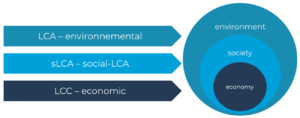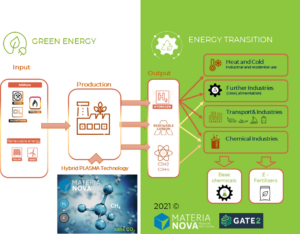
Stakeholder Spotlight – Materia Nova
Tell us a little about your organisation. How do the areas of nanotechnology and sustainability impact your work?
Materia Nova is a research institute, technology accelerator for sustainable innovation in materials and processes. Materia Nova works with and for companies to develop innovative and collaborative projects capable of meeting societal and environmental challenges.
Nanotechnology is part of our 4 main research areas: surface treatment, energy, health and prevention, and environmentally friendly materials and processes. To ensure the sustainability of our projects /solutions, a Life Cycle Thinking unit of 4 scientists studies the innovations we develop with environmental LCA tools, with an aim of eco-designing innovation, but also with life-cycle costing (LCC) and social-LCA.

What is the newest/most innovative development in nanotechnology that you and/or your organisation is excited about now?
Materia Nova’s major ambition is to become a major player in the transition to sustainable energy, in particular through the production of carbon-free and competitive hydrogen and efuels.
Our plasma chemical conversion technologies make it possible to process various gaseous and liquid materials in order to convert and upgrade them into hydrogen, chemical synthons and efuels. Unlike current processes responsible for significant GHG emissions, our process is very environmentally friendly. During the conversion of hydrocarbons such as biomethane, various forms of solid nanometric carbons are produced in significant quantities but without direct emission of greenhouse gases. As part of the European Plan for Recovery and Resilience, we are aiming in less than 4 years to set up a pre-industrial demonstration tool (TRL 8) capable of producing at least 150 tons of hydrogen and ~ 500 tons of carbon forms per year. Materia Nova and its start-up GATE2, which have patented the plasma process, are therefore a cornerstone of this development and want to take an industrial leadership in Europe in the field of production of carbon-free nanometric materials with several benefits in various industrial sectors (rubber for tyres, coatings, electrodes/catalysts for batteries and fuel cells, new catalysts for chemical industry, new solutions for smart agriculture 2050, etc.). From a more academic point of view, there is still a lot of R&I work to discover new and more advanced forms of carbon. We are very proud to be at the initiative of this major strategic development with the feeling of preparing a sustainable world for the benefit of future generations.

What, in your opinion, is the most important thing (tool, process, support, etc.) that is needed right now to help grow and strengthen the nanotechnology community?
I think the most important is to share the information. It will come from the literature, the standardisation of the methods, a specific database, etc…
For example, in a research institute, such as Materia Nova, the objective is to test the newest nanotechnology and to produce novel nanomaterials with new or improved properties. But we also need to ensure the health of our scientists. We use, and characterise, for our materials nano-powders. In my opinion, one of the most important things needed is to continue documenting on risk assessment to be more prepared to handle it safely and to perform life cycle assessment.
Another important goal to achieve is to think by now to the end of life of the product. Eco-design and sustainability should be involved at the beginning of a project including nanotechnology.
What, in your opinion, are important factors or influences that will affect the direction of the nanotechnology community in the future?
The most important factor will be to prove that nanotechnology is the safest and sustainable solution to reach a certain product.
Nowadays, the impact of every new product/process needs to be in accordance with our planet, from an environmental and a human point of view, as well as economically friendly for investors. At least it means to be sustainable.

Interviewee person: Benjamine Belloncle (R&D scientist at Materia Nova)
For more information, please visit: http://www.materianova.be/de/

